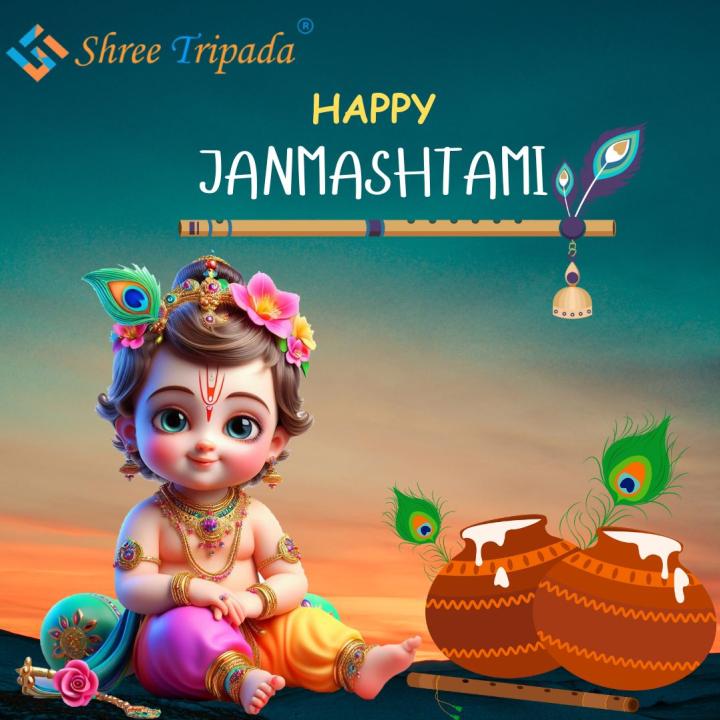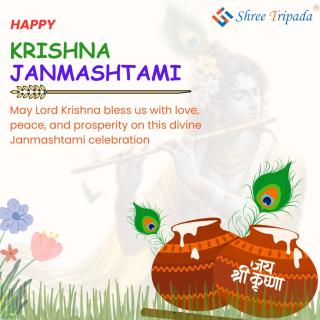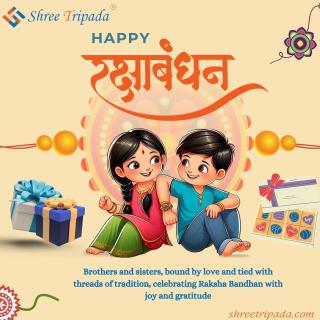The Birth of Krishna
Janmashtami, a vibrant and sacred festival celebrated with immense fervor across India and beyond, marks the birth of Lord Krishna, one of the most revered deities in Hinduism. The festival falls on the eighth day of the dark fortnight of the month of Bhadrapada, which typically corresponds to August or September. This day is celebrated with joyous processions, devotional singing, fasting, and dramatic reenactments of Krishna’s life. The story of Krishna’s birth is one of divine intervention and cosmic significance. Born in the Dwapara Yuga to Devaki and Vasudeva, Krishna’s arrival was heralded as a divine answer to the prayers of the people of Earth who were suffering under the tyrannical rule of Kansa, Devaki’s brother. According to ancient texts, Kansa had been warned that the eighth child of Devaki would be his doom, prompting him to imprison the couple and put to death each of their children. Krishna’s birth was thus a miraculous event that took place in the prison cell of Mathura, a city in Uttar Pradesh, India. To save Krishna from Kansa’s clutches, Vasudeva carried the newborn across the Yamuna River to Gokul, where he was raised by his foster parents, Nanda and Yashoda.
The Playful Childhood of Krishna
Krishna’s childhood is marked by a series of enchanting and miraculous incidents that have been cherished through folklore and scriptures. Known for his mischievous nature, Krishna’s early life is a tapestry of divine playfulness and profound lessons. One of the most celebrated stories is that of his lifting of the Govardhan Hill. When the people of Gokul were threatened by a torrential downpour caused by Indra, the king of the heavens, Krishna intervened by lifting the entire Govardhan Hill on his little finger to provide shelter to the villagers. This act not only saved the people but also demonstrated Krishna’s divine powers and his role as a protector. Another iconic childhood pastime was his penchant for stealing butter, which earned him the endearing moniker of “Makhan Chor” or “Butter Thief.” The playful nature of these exploits won the hearts of everyone around him and solidified his place in the cultural and spiritual consciousness of his devotees. Additionally, the Dahi Handi festival, which is celebrated with great enthusiasm during Janmashtami, reenacts Krishna’s playful act of breaking pots filled with curd and butter, symbolizing his mischievous antics and the joyous spirit of his childhood.
Krishna’s Role in the Mahabharata
Krishna’s role in the epic Mahabharata is profound and multifaceted. He serves as a mentor, guide, and divine charioteer to the Pandavas, particularly Arjuna, during the great Kurukshetra War. His teachings in the Bhagavad Gita, a dialogue between Krishna and Arjuna that occurs on the battlefield, are considered a cornerstone of Hindu philosophy. In this sacred text, Krishna imparts wisdom on duty, righteousness, and the nature of life and the universe. He explains the concept of Dharma (duty/righteousness) and encourages Arjuna to fulfill his Kshatriya (warrior) duty despite the moral dilemmas and emotional conflicts he faces. Krishna’s teachings in the Gita offer profound insights into the nature of existence, the self, and the path to spiritual liberation. His role in the Mahabharata is not just as a guide and strategist but as a divine presence that transcends the physical realm, embodying the ultimate reality and the divine purpose behind the cosmic play of life.
Enduring Wisdom: Krishna’s Quotes
In conclusion, the story of Lord Krishna, from his miraculous birth to his divine role in the Mahabharata, reflects a tapestry of divine grace, wisdom, and love. The teachings of Krishna, particularly as articulated in the Bhagavad Gita, continue to inspire and guide millions of people around the world. Here are a few of the most cherished quotes from the Mahabharata that encapsulate Krishna’s divine wisdom and the essence of his teachings:
1. “You have the right to perform your prescribed duties, but you are not entitled to the fruits of your actions.” - This quote from the Bhagavad Gita emphasizes the importance of focusing on one's duty and actions without attachment to the outcomes.
2. “When meditation is mastered, the mind is unwavering like the flame of a lamp in a windless place.” - This quote highlights the importance of mastering one's mind through meditation, which leads to spiritual steadiness and clarity.
3. “The soul is neither born, and nor does it die.” - Here, Krishna explains the eternal nature of the soul, transcending the physical birth and death of the body.
4. “In the practice of Yoga, the mind is the friend of the self, and the mind is the enemy of the self.” - Krishna teaches that the mind can either be a source of great support or a significant obstacle in one’s spiritual journey.
5. “Change is the law of the universe. You can be a millionaire, or a pauper in an instant.” - This quote reflects the transient nature of material wealth and worldly status, encouraging detachment and spiritual growth.
Janmashtami is not only a celebration of Krishna’s birth but also an opportunity to reflect on the profound teachings and timeless wisdom that his life and words impart. Through his divine play and guidance, Krishna continues to illuminate the path of righteousness, devotion, and spiritual realization.
As we join in the joyful celebration of Janmashtami, everyone at Shree Tripada sends our heartfelt wishes to you and your family. May Lord Krishna’s divine grace bring you abundant joy, peace, and prosperity. Shree Tripada, your reliable partner in bulk SMS services, hopes you enjoy a wonderful and blessed Janmashtami. May this festive season fill your lives with light, love, and happiness.




